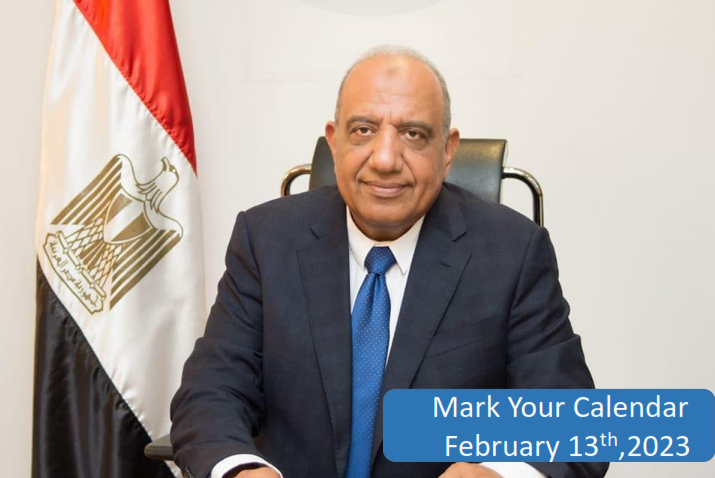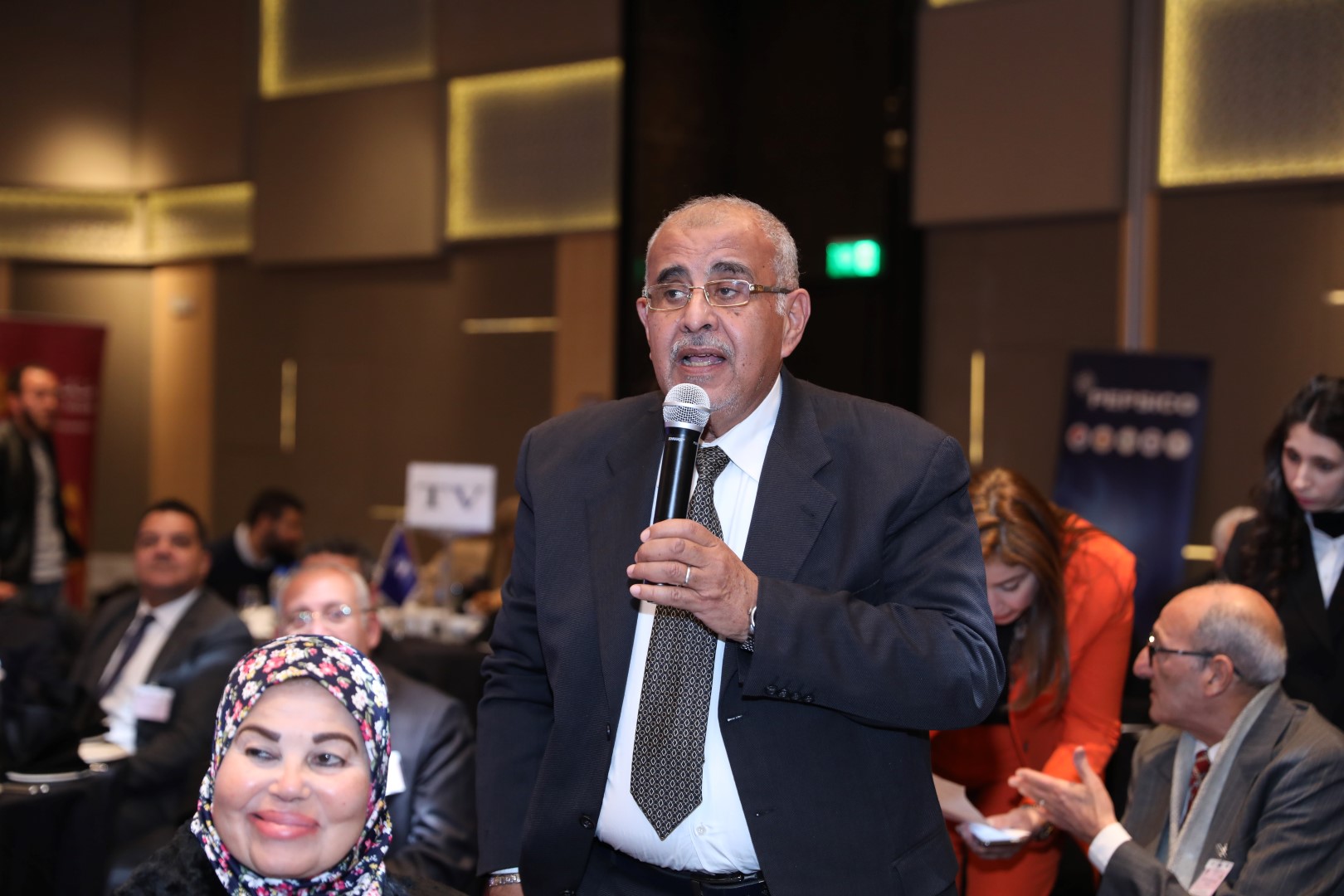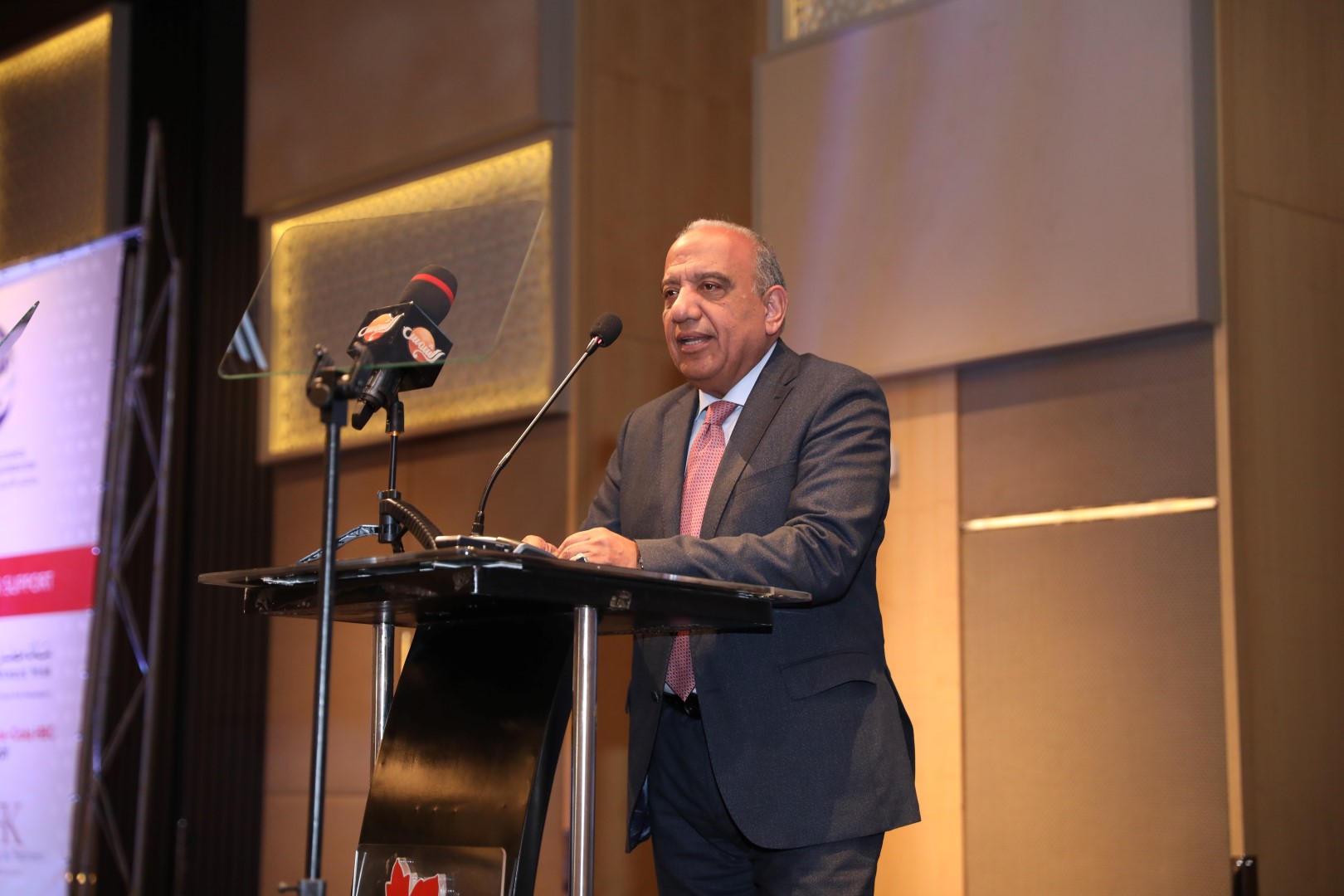
Date
Speaker(s)
Designation
Invitation
Description
Ambitious plans and strategies are being implemented to rehabilitate and develop public business sector companies, with the aim of improving operating economies and localizing the industry in order to achieve economic development. The State Ownership Policy document came as a serious step aimed at creating an investment climate, expanding the participation of the private sector, stimulating it to pump new investments, managing state assets in an optimal manner, and exiting from some sectors. But are these plans affected by the current challenges? Are there controls to ensure that investments are pumped into the sectors that we need to upgrade?
In this context, Canada Egypt Business Council and the Egyptian Business Council for International Cooperation in cooperation with Gosoor El Nasr for Export and Import held a symposium entitled “Rehabilitation and Development of the Public Enterprises Sector… Opportunities and Challenges” featuring H.E. Mahmoud Esmat; Minister of Public Enterprise Sector as the key note guest speaker.
In his opening remarks, Mr. Motaz Raslan chairman of CEBC and ECIC mentioned that the development and rehabilitation of the public enterprise sector needs a clear and specific vision for this sector and its companies, what can be kept and what can be sold.
Mr. Raslan pointed out that despite the diversity of activities in which the public enterprises sector works, many of this companies suffer from losses and debt accumulation. He added that among 121 companies are only 73 profits companies worth 14.8 billion pounds, while 48 companies achieve losses of 7.4 billion pounds. This means, he explained, that the profit generated from the public enterprises companies are only 7.5 billion pounds, which is not proportionate with the volume of their capabilities.
He concluded that President Abdel Fattah El -Sisi’s directives came to correct the conditions of the public enterprises sector, which contributed to the presence of a radical transformation within a few years, and to move in many directions, including maximizing the benefit from partnership with the private sector, and the listing of state owned enterprises in the stock exchange.
Then the floor was given to H.E. Mahmoud Esmat; Minister of Public Enterprises Sector as he stressed that historical hotels are not for sale, nor can they be subjected to an evaluation or estimate, as they are priceless.
H.E Mahmoud Esmat also added that the Prime Minister announced that the government’s plan to list 32 companies and banks on the Egyptian Stock Exchange until the first quarter of 2024, which included stated owned hotels, without specifying a list of those hotels. He further outlined the sectors from which the state plans to exit, and those in which it will continue in light of its plan such as medicines, fertilizers, chemicals and aluminum.
The Minister of Public Enterprises Sector went on to explain that the list of investment opportunities in subsidiaries and the rehabilitation of companies for partnership with the private sector has been prepared, in the context of efforts to encourage the private sector and attract local and foreign investments, as well as setting a specific and clear strategy for each holding company from the seven companies affiliated with the ministry.
He concluded his speech saying that there are so many studies have been prepared by the ministry during the past few months on the establishment of new factories with the aim of achieving added value in sectors in which the Egyptian market depends on importing, in order to replace imported products with local products in an attempt to localize the industry and relieve pressure on the foreign currency.
Then the floor was opened for questions and answers where many inquiries and ideas were suggested discussing ways for more public private partnerships and the rehabilitation and development of the Public Enterprises Sector.




































